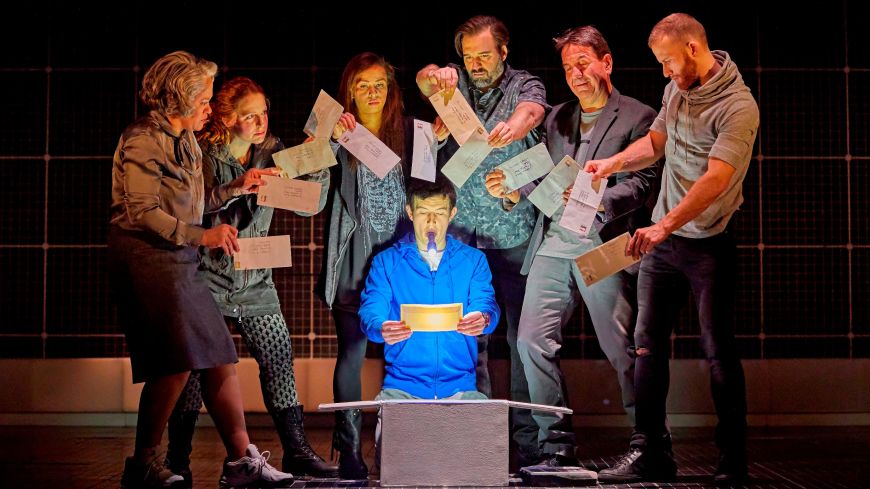
There often seems to be more young people who present as being “on the spectrum” than ever before. Better diagnosis and more openness about conditions like Asperger's Syndrome and autism may be the cause.
Christopher (an expressive and sprightly Scott Reid) is a 15-year-old with severe Asperger’s – he can tell the number of stars in the universe, but can’t stand to be touched. He knows all about prime numbers but not about people. Christopher is a whiz with mathematics, but can’t stand strangers.
His father is patient and just about copes with his son’s challenging demands. Then a neighbour’s dog is found killed in a nearby back garden. Motherless Christopher plans to discover who killed the beast and makes some surprising, life-changing discoveries.
Although the narrative sounds domestic the staging is anything but. The story is based on the bestselling novel by Mark Haddon and was adapted for the National Theatre by Simon Stephens. But it’s director Marianne Elliott and her creative team who deserve the lion’s share of praise in this startling, much-lauded piece of contemporary, popular theatre which illumines a condition that many people find difficult to understand.
The digitised cube in which the action takes place is animated with everything from the night sky to the tumbling numbers that dominate Christopher’s world. Eight projectors are used in the lighting scheme offering more than 11 million pixels.
Christopher – so often exasperating to the adults around him – says everything as he sees it, sparing no one’s blushes and incapable of a white lie. The play is as much as anything about truth-telling – the delusions, the obfuscations, the painful lies we tell because we can’t face reality. In almost every way this is a vital, modern classic.
Til 25 February

